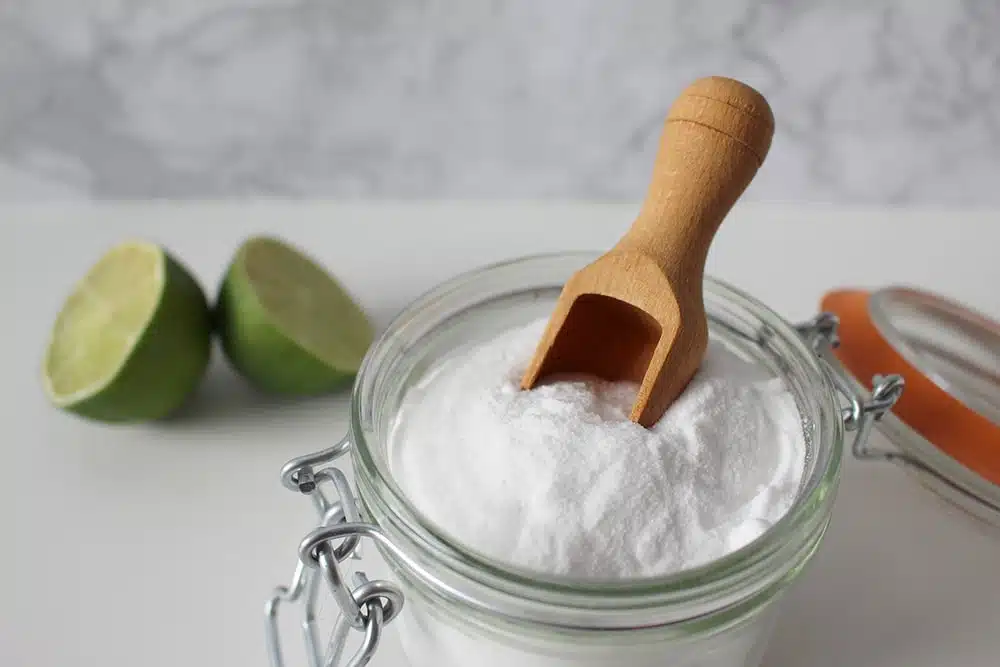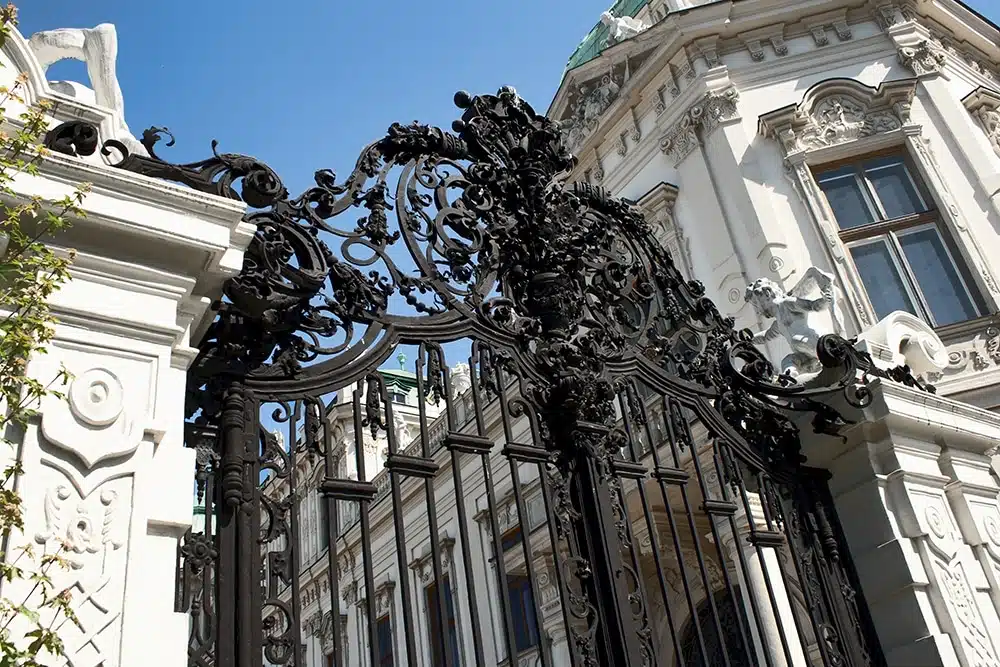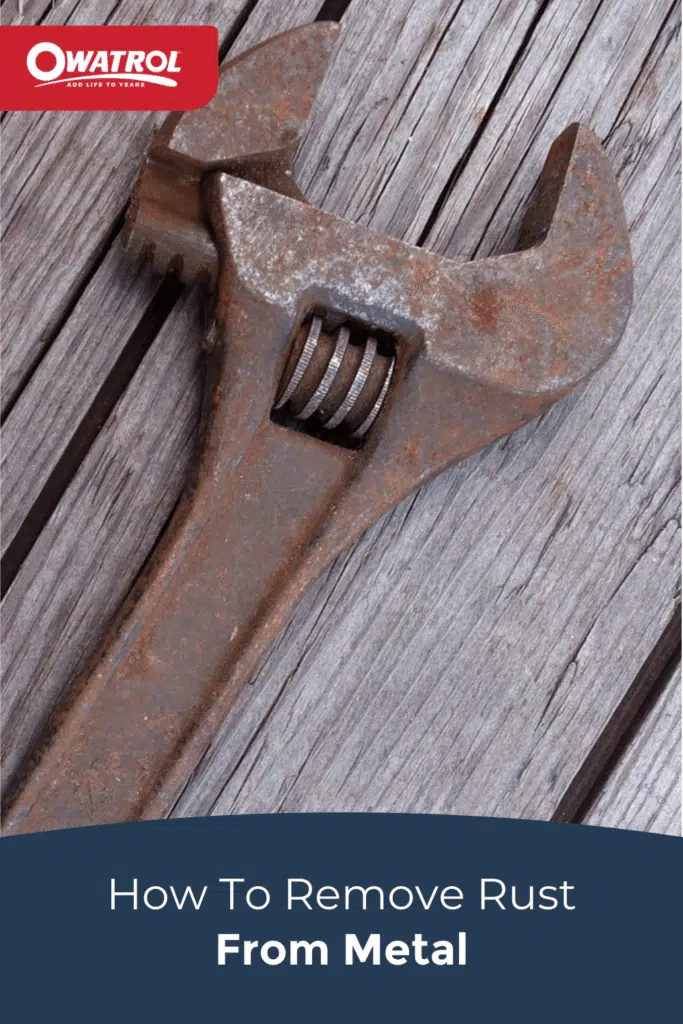Rust, or iron oxide, can be aesthetically pleasing to some, but others may find it unsightly and if not removed or maintained can be the cause of irreparable damage.
If you have found a tool, a metal fence or even patio tiles that have succumbed to rust, there are a few ways of removing it.
Firstly, what is rust?
Rust is a red iron oxide that is formed by a chemical reaction between iron and oxygen when in the presence of water or air moisture. Rusting is the common term for this type of corrosion and given enough time, oxygen and water, any iron object will eventually convert entirely to rust and disintegrate.
Although an object has become rusty, it doesn’t always mean it is now unusable or need to be replaced. Some ways of removing rust may take time and require a little elbow grease, but it can be removed.
There are 6 common ways of removing rust and today we are going to go through them and explain why they work. Some may seem a little odd, but really it’s all just about chemistry!
Top 6 ways of removing rust
- White Vinegar
- Lemon/Lime & Salt
- Baking Soda
- Potato & Dish Soap
- Citric Acid
- Rust Removing Chemicals
Some of these may seem a little odd, but we’re going to go through them all and see which method is most suitable for you!
White Vinegar
White vinegar is one of those household items that seem to be able to be used for almost anything!
It is best to use this method on surfaces that have significant rusting, especially if the item can be submerged.
It is very effective as a rust remover as the rust simply reacts with the vinegar and dissolves. If the item you are removing rust from is small enough to be submerged in a bath of white vinegar, simply leave it in there for a few hours and then wipe the paste off.
However, if your object is too large and cannot be submerged, simply pour the white vinegar over the surface and allow it time to work.
You could also use a piece of steel wool, a wire brush or even aluminium foil dipped in vinegar and wipe/scrub the rust off.
This process can be repeated if necessary.
Once you are happy with the result, simply clean with soap and water and leave to dry.
Lime/Lemon & Salt
This is another effective and cheap way of removing rust.
It is best to use this method on very light rusted surfaces. Great for things such as kitchen knifes due to the nature of the products used.
All you need to do it cover the rusted surface with a layer of salt. Then, squeeze a lime/lemon all over the salt. Be generous with both products and allow between 2 -4 hours of work time.
Lastly, scrub the mixture off. At first, we recommend using the left over rind/s to help remove the mixture, but if you need a bit more assistance, you can use steel wool or a wire brush.
This process safely can be repeated if necessary.
Wash off the remnants of the mixture with soap and water and allow to dry.
Baking Soda
Another staple household product that seems to be used for all sorts of things – baking soda!
It is best to use the baking soda method for items that have less severe rust and thin metals.
First, add a small amount of water to baking powder to create a thick paste. Make sure the paste is thick as having it thin or running will alter its effectiveness.
This process can be repeated so long as the rust is still being removed with each application. If rust stops coming off with the paste, you may need to use a different method.
Finally, wash off the remaining paste with soap and water and allow to dry.
Potato & Dish Soap
Yes, you read that correctly; potato and dish soap. Although it sounds a little crazy, there is a reason that makes a lot of sense.
It is best to use this method for minor rusting in easy to reach areas.
Potatoes contain something called ‘oxalic acid’ – a compound that is excellent for cleaning and rust removal!
The potato is combined with dish soap as is used to cut through grease and grime.
Simply cut a potato in half and place the cut side into a container of dish soap. Allow it to sit for a few minutes to allow the soap to soak in.
Then, simply place the soapy side of the potato onto the surface and leave it to work for an hour or two to allow the chemical reaction to occur.
When you are ready to proceed, rub the area with the potato to assist with removing the rust. If necessary, use steel wool or a wire brush to help remove more stubborn rust.
Finally, rinse the area with water and allow it to dry.
This process safely can be repeated if necessary.
Fun fact; chives and parsley actually contain more oxalic acid than potatoes, but obviously, they are a lot more difficult to utilise!
Citric Acid
Another way of effectively removing rust is by using citric acid.
It is best to use this method on more severe rust that can be easily submerged.
Please be aware that this particular method will remove paint or other coatings on the surface. We recommend using one of the other options listed above if this is something you want to avoid.
To use the citric acid method, simply create a bath of a few inches of hot water and sprinkle in 2 – 3 tablespoons.
Submerge your item and leave it to work for several hours (even overnight if necessary).
Then, remove your item from the solution, scrub any loose flaking rust with steel wool or wire brush, rinse and allow to dry.
Rust Removing Chemicals
Some of these types of chemical are very powerful and extreme care should be taken when using them.
We recommend trying one of the aforementioned methods first before trying chemicals.
The most commonly used rust removing chemical is phosphoric acid. The solution creates a chemical reaction when applied to rust converting it to a water-soluble compound that can be scrubbed away quickly and easily.
This type of chemical is quick to act and is very effective, but it is important to know that it is very toxic. If you choose this method, please pay close attention to which chemical is present in the product and pay close attention to the instructions provided exactly.
You will need to wear gloves, a mask, sufficient close toes shoes, a long sleeved t-shirt and long pants when using these types of chemicals.
Removing rust from your patio
We have had success stories where our customer have used Net-Trol to remove rust from their patio tiles.
Net-Trol is a water-based cleaner and brightener that can be used on many surfaces including stone, cement, wood and plastic.
It does not contain any bleach or chlorine and so it is not harmful to your surfaces, plants or shrubs, allowing it to be safely used in your garden.
Read our previous blog post where we talk all about it.
Now that the rust has been removed, you should protect it from reoccurring.
If you plan on painting your newly restored surface, why not try Owatrol AP60?
Protect with Owatrol AP60?
Owatrol AP60 is a rust inhibiting primer that can be overcoated with any type of paint. It contains the anti-corrosive properties of Owatrol Oil which enable it to stabilise the surface by penetrating deep into the substrate, driving out excess moisture and air to form a solid stable layer.
It is easy to use and can be used on both new and rusted surfaces, both inside and out. AP60 has excellent adhesion, allowing it to perform exceptionally well on clean, bright steel – typically a difficult surface to coat.
It will also not break down even when high solvent paints and finishes are applied to it, making it perfect to use as a primer for 2-pack paints.
AP60’s enhanced corrosion protection and strong surface make it perfect for use in extreme climatic conditions such as in the marine environment and in tropical areas.
So there we have it! We hope you have learned something new and are now ready to tackle that rust!
If you have any other handy tips or advice, please feel free to leave them in the comments below.
We love hearing from you! If you share your project on Twitter, Facebook, Instagram or Pinterest please feel free to tag us @owatrolUK or use #owatrolUK so we can see and share your hard work!

















Hi.
Im working on a vintage car and need to de-rust mudguards and body work. Is there a chemical solution that the parts could be submerged into if I build a large tank – even an old porta-pool or bath. Sand blasting is a rather harsh option and cant get in door panels where the metal is doubled over. A solution of Hydrochloric Acid bu has to be neutralised befor painting and can eat through thin, heavily rusted panels.
Any suggestions?
Hi there Graeme,
You are best off speaking with our technical team for a question like this. Please feel free to give us a call on: 01582 592707 or send us an email to: sales@owatroluk.com where we will be able to assist you.
All the best,
The Owatrol Team